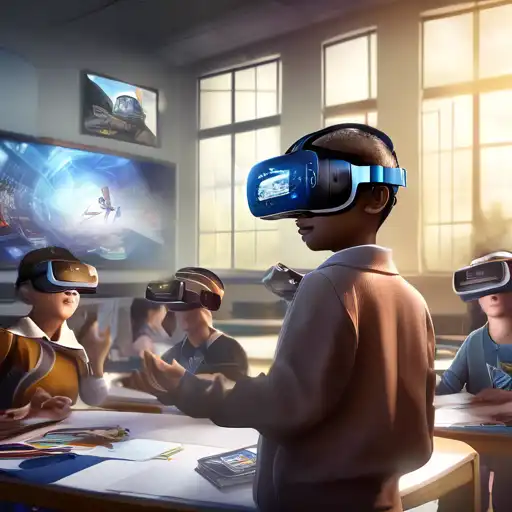Revolutionizing Learning: The Impact of Virtual Reality in Education
Virtual Reality (VR) is transforming the educational landscape, offering immersive learning experiences that were once beyond imagination. This technology is not just a tool for entertainment but a powerful educational instrument that enhances learning, engagement, and retention. As we delve into the new era of education, VR stands out as a beacon of innovation, reshaping how knowledge is imparted and absorbed.
The Benefits of Virtual Reality in Education
VR in education brings a multitude of benefits, including:
- Enhanced Engagement: VR captivates students' attention like never before, making learning an exciting adventure.
- Improved Retention: Immersive experiences help in better retention of information by engaging multiple senses.
- Accessible Learning: VR makes education accessible to everyone, regardless of geographical or physical limitations.
- Safe Environment: It provides a safe space for students to experiment and learn from mistakes without real-world consequences.
Virtual Reality Applications in Various Educational Fields
From history to science, VR applications are vast and varied. Here are some examples:
- History: Students can virtually visit ancient civilizations, witnessing historical events unfold before their eyes.
- Science: VR allows for intricate explorations of the human body or the vastness of space, making complex concepts easier to grasp.
- Engineering: It offers a hands-on approach to designing and testing prototypes in a virtual environment.
- Art: VR opens up new avenues for creativity, enabling students to create art in three-dimensional spaces.
Challenges and Considerations
Despite its potential, VR in education faces challenges such as high costs, the need for technical support, and the risk of reducing physical social interactions. However, with continuous advancements and decreasing costs, VR is becoming more accessible to educational institutions worldwide.
The Future of Virtual Reality in Education
The future of VR in education is bright, with ongoing developments aimed at making learning more interactive, personalized, and effective. As technology evolves, we can expect VR to become an integral part of educational curricula, offering students unparalleled learning experiences.
For more insights into how technology is shaping education, explore our articles on Innovation in Learning and The Future of Education.
Virtual Reality is not just a fleeting trend but a transformative force in education. By embracing VR, educators can provide students with a rich, engaging, and effective learning environment that prepares them for the challenges of the future.
